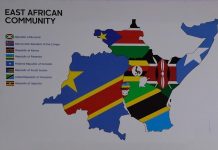Africa-Press – Rwanda. IFRS 17 is much more than a financial reporting standard. Whereas it can be tempting to view the standard through the lens of compliance, the process of implementing the standard brings many aspects of business operations into sharp focus.
That level of granular clarity can instigate and support transformational change across an insurance business.
Clarity emerges partly as a result of the standard’s substantial data requirements and the need for various parts of the business to regularly engage with each other more deeply. Long before an insurance business can even begin to comply with the standard, it will need to have implemented a digital strategy that delivers data integrated from appropriate and reliable sources.
The process of collecting and analysing this data can provide a deep level of insight about the fundamental health of the business, as well as support c-suite and Board-level decision-making. These benefits are intentional; the standard is designed to require data and analysis that supports sustainable, transparent assumptions and decisions.
Complying with the standard also requires cross- functional collaboration within insurance businesses. Again, even before compliance begins, most will need to integrate different functions that may have operated in silos such as the claims function and the finance function.
These and other functions will need to contribute to a seamless flow of data and communication even in their day-to-day operations, breaking down any silos between them as they adjust to the new requirements. The benefit of this new way of working is insight.
For this to work, many staff will need training and their organisations may also need to hire people with the right skills into the business. Inasmuch as an insurance business may already employ actuaries involved in deep analysis, for example, staff in underwriting, claims management and reinsurance will need a very good understanding of the standard in order to contribute to compliance.
At a functional level all the way to Board level, the standard requires digitally fit, upskilled staff and leadership. Now is the time to invest in those skills and to proactively engage in the process of developing those skills such as through partnerships with universities. By proactively engaging in that process, organisations will help to grow the skills that they will need tomorrow – skills that are not widely available at the present time.
IFRS 17 has been postponed twice, which indicates the complexity of the standard and the challenges expected. It will be unfortunate if organisations don’t take advantage of this opportunity to implement a full-fledged implementation plan around the standard.
With other new standards like IFRS 9, the benefits have extended far beyond just compliance and reporting. An insurance business can and should learn from this experience and use the next two years as a breathing space to implement IFRS 17 in such a way that the business emerges stronger and more agile.
Although the next two years affords enough time for implementation, organisations need to take action this year to plan such that in 2021, they have data to analyse for any gaps indicating that it was not collected in accordance with IFRS 17’s requirements.
By 2022, organisations should have an operational prototype that delivers data collection in compliance with the standard’s requirements and the ability to carry out parallel runs.
For East Africa region insurers, the two years can be used wisely to make adjustments and to assess the transformational impact of implementing the standard – otherwise the true benefits of the standard will not be realised with a rushed implementation.
Finally, everyone needs to come to the table. Group- level implementation still requires local-level input, and local subsidiaries need to be embedded in the group implementation plan.
In fact, group-level leadership should promote even more efficiency amongst subsidiaries to ensure a smoother implementation process. Each subsidiary should plan for implementation in a local context and make policy choices accordingly.
There is no one-size-fits-all solution; each business operates differently in a different local context.
IFRS 17 is much more than a financial reporting standard. In this region and elsewhere, there has been a tendency to focus on compliance itself but the standard’s complexity effectively requires change across the business.
IFRS 17 certainly requires investment in skills, technology systems and consultants. But it would be a mistake to view IFRS 17 in such a piecemeal fashion. By taking full advantage of all it has to offer, IFRS 17 implementation is a catalyst for wider business transformation.
The writer is the Country Senior Partner with PricewaterhouseCoopers (PwC), based in Rwanda, where he leads the Financial Services Sector industry group.
The article was authored for the just released PwC’s East Africa IFRS 17 Survey Report (https://www.pwc.com/ke/en/publications/east-africa-ifrs-17-survey-report.html)
The views expressed in this article are of the writer.






